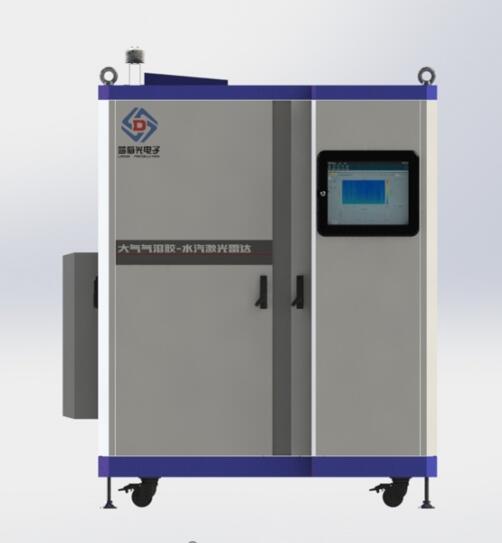
System Introduction
1. This system primarily employs polarization-Raman-Mie scattering lidar technology to simultaneously measure the optical properties of atmospheric aerosols and the spatial distribution and temporal evolution of water vapor concentration. It is widely applicable in meteorology, environmental protection, and atmospheric research.
2. The lidar outputs pulsed emissions at three wavelengths: 355 nm, 532 nm, and 1064 nm.
3. By receiving Mie scattering signals at 355 nm, 532 nm, and 1064 nm, along with Raman scattering signals from nitrogen at 386 nm, the system quantitatively retrieves vertical profiles of aerosol and cloud extinction coefficients, backscattering coefficients, and extinction-to-backscattering ratios.
4. It obtains vertical profiles of aerosol and cloud particle depolarization ratios by capturing the parallel and vertical components of the 532 nm scattering signals.
5. Water vapor concentration vertical profiles are derived by receiving Raman scattering signals at 407 nm for water vapor and at 386 nm for nitrogen.
Product Appearance

Product Features:
Overall optimization in optical, mechanical, and computational design enhances comprehensive detection performance and inversion accuracy.
Capable of simultaneous, continuous observation of aerosol particles and water vapor, both day and night.
Intelligent box design allows for all-weather outdoor operation, making it suitable for routine monitoring.
Supports wired and wireless data transmission, remote control, and networked observation capabilities, along with 3D networking data analysis and dynamic display services.